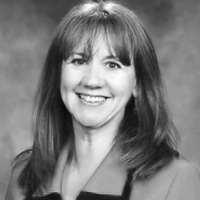Question
I am privileged with supervising student interns in a medical facility, as well as having the opportunity to coordinate the placement of students throughout our network. I was wondering if there are guidelines for accepting/rejecting the placement of a st
Answer
You are to be commended on your willingness to participate in the clinical training of students. This critical part of professional education requires a partnership with the university, facility and student. Student and supervisor expectations and responsibilities must be clearly communicated between all parties to ensure a ''good fit'' and a successful experience by all. Sites may develop a set of guidelines or a handbook to be shared with the university liaison and the practicum student. The Newsletter of ASHA's Special Interest Division 11: Administration and Supervision is an excellent source of information on issues in the training of student interns. Two excellent and pertinent articles are listed in the references for your consideration.
ASHA's position statement on dialects and accents states the official position of the association and the ethical conduct required of its members.
All individuals speak with an accent and/or dialect: thus, the nonacceptance of individuals into higher education programs or into the professions solely on the basis of the presence of an accent or dialect is discriminatory. Members of ASHA must not discriminate against persons who speak with an accent and/or dialect in educational programs, employment, or service delivery, and should encourage an understanding of linguistic differences among consumers and the general population. (ASHA Joint Subcommittee of the Executive Board on English Language Proficiency, 1998, p.28)The accompanying technical report, Students and Professionals Who Speak English With Accents and Nonstandard Dialects: Issues and Recommendations, provides some specific considerations for the provision of clinical services by accent or dialect speakers. The report states that there is no research to indicate that speech-language pathologists or audiologists who speak a nonstandard dialect are unable to make appropriate diagnostic decisions or achieve appropriate treatment outcomes. Appropriate points for consideration by university faculty and clinical supervisors include:
- Does the individual have the expected level of knowledge in normal and disordered communication?
- Does the individual have the expected level of diagnostic and clinical case management skills?
- If modeling is necessary, is the individual able to model the target phoneme, grammatical feature, or other aspect of speech and language that characterizes the client's particular problem? (ASHA Joint Subcommittee of the Executive Board on English Language Proficiency, 1998,p.30)
References:
American Speech-Language-Hearing Association. Code of ethics (revised). ASHA Supplement, 23, in press.
American Speech-Language-Hearing Association Joint Subcommittee of the Executive Board on English Language Proficiency. (1998). Students and professionals who speak English with accents and nonstandard dialects: Issues and recommendations. Position statement and technical report. Asha, 40 (Suppl. 18), 28-31
Montgomery, J. (1999). Accents and Dialects: Creating a National Professional Statement. Topics in Language Disorders 19(4): 78-86.
Newman, W., (2001) The Ethical and Legal Aspects of Clinical Supervision. Division 11 Newsletter, 11(3), 18-22.
O'Connor, L., (2000) A Collaborative Model to Improve the Training of Student Interns in Medical Settings, Division 11 Newsletter, 10(3) 23-24
Pat D. Miller. M.S., CCC-SLP is the Coordinator of Adult Neurogenic Practicum for Saint Louis University. She has been involved in the placement and overseeing of student practicum for over 20 years. Located in an urban, metropolitan area, Saint Louis University regularly attracts international students and has a strong emphasis on multicultural education. In addition to teaching graduate and undergraduate courses, she also serves as the coordinator of the Lynda R. Campbell Memorial Lecture Series on Topics in Diversity. Ms. Miller's professional interests include ethics and interdisciplinary education. She has served as the Chair of the college Service and Ethics Committee and is a founding member of the Center for Interdisciplinary Education and Research.

